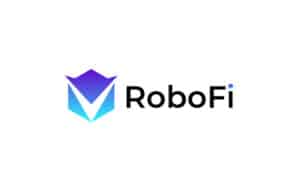Each blockchain transaction is unique and deals with different data quantities. Blockchains and networks tailored to certain user groups or organizations have become increasingly apparent. Interoperability solves the issue of assets and data interfacing across different chains.
When multiple blockchains are interoperable, users can access and share information across them. The data and transactions on each blockchain are unique. Blockchains can share and access each other’s data, thanks to interoperability. The concept also covers its capacity to share and communicate with other blockchains.
How interoperability works
There must be a means for two or more systems to interact with each other. Parties must adopt standard data formats and data structure protocols to achieve syntactic interoperability. Because of this, even if the user interface and programming language may be different, multiple software components can work together.
As a result of semantic interoperability, data elements have metadata that binds them to a predefined, familiar language.
Technical interoperability allows data to flow back and forth across multiple platforms. It allows for integrating distinct software components, even if there are differences in the interface and programming language.
Structural interoperability defines data interchange formats at an intermediate level. This is a matter of communication protocols between systems.
It is possible to transmit meaningful information that is not dependent on any particular information system thanks to these common standards. As a result, businesses can expect more output, lower expenses, and fewer mistakes.
Standards for interoperability between diverse stakeholders and subject matter experts, such as doctors, engineers, plant operators, financial analysts, and so on, are available.
Integration vs. Interoperability
Although both integration and interoperability include linking applications and making data transmission easier, the primary distinction is how various systems communicate with one another. With interoperability, all systems must communicate with each other in a common language. They must also allow for real-time transmission of data between systems. Finally, the data interpretation must be perfect and its original context retained.
Integration is the process of merging different programs into one seamless system, which often requires the usage of middleware. The integration allows products to communicate with one other in their current state while being backward compatible with their future editions.
Why is interoperability important?
Blockchains are vital for miners and investors, as well as for the general public. It is for ensuring safe and secure transactions. Mining is also essential to verify a specific transaction.
Interoperability among different protocols is necessary to make the process mentioned above easier. The advantage grows in proportion to the size of the network. Interoperability across other protocols expands the network of blockchains, hence increasing the efficiency of the process.
With the creation of intermediary transactions, protocol interoperability facilitates data transfer between two or more chains.
Private institutions respect interoperability because it tries to address well-known issues like duplication of information, lack of cohesiveness between distinct sections, etc. An organization loses all sense of direction and control when they are bombarded with such problems.
While interoperability is crucial for private enterprises, it is also essential for public organizations for cooperation, development, integration, and service delivery to occur in the most efficient manner possible.
The benefits
- Interoperability has made cross-chain transactions easier by enabling blockchains to communicate their data with one another.
- It enhances project linkage: Interoperability can help boost the success rate of both established and new companies in different industries. This is especially important for high-value-chain projects like health care and financial services.
- It promotes the adoption of blockchain technology: As technology grows, so does its potential for success. The ease with which data may be shared and integrated is made possible through interoperability, strengthening blockchain technology. This stimulates the use of blockchain technology.
- Cost-effective: When systems can communicate, they can share more helpful information and do so more quickly. Users benefit from increased efficiency by spending less time and effort, which reduces overall costs.
- Increases productivity: We can link information to relevant value chains, increasing productivity with this technology. It is, therefore, possible to cooperate and operate cohesively throughout the entire process, ensuring that all parties and systems have access to the same information.
- Interoperability has also made multi-token transactions more efficient.
- It facilitates cross-industry collaboration: Transparency and verifiability of data, the execution of smart contracts, and decentralized consensus are the core features of blockchain technology. This enables application in multiple industry-specific use cases. It makes it possible for organizations and communities that don’t normally interact to share information, leverage one another’s strengths, and foster creativity more efficiently and effectively.
In summary
Many fields, like financial services, commerce, and healthcare, stand to benefit significantly from blockchain technology. Interoperability is vital to ensuring sufficient productivity and profit. It isn’t just suitable for generating profit but also helps with many intermediary procedures. It improves database administration methods as well.



